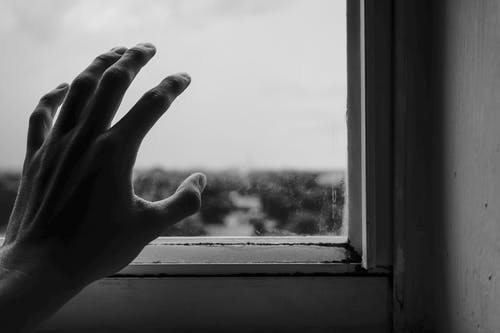This is a story about a 35-year-old woman who carries the burden of FGM at the very core of her. She campaigns intensely to end the practice. Her voice is always trying to rise above a barrage of voices that want to continue with the practice no matter the cost.
Nasieku went through FGM at the age of 13. She recalls a chilly Saturday morning in 1995. As a Maasai girl, it was expected that she should undergo the ritual.
“One of my sisters told me to refuse and run away but my mother told me to undergo FGM because it is a good thing. Older women in the community who were my mother’s friends agreed. These pro-FGM women were convincing, they were older, I respected and believed in them. My sister was younger and I thought she was denying me something good because she had undergone FGM herself, so I gave in to their demands.”
She went on to continue with school. Nurturing her ambitions to become a teacher. But, like a bad omen send to stalk her life and halt her dreams, she got pregnant.
“Child birth was traumatic, the only thing I remember is the tearing and bleeding, I wouldn’t wish my worst enemy the kind of pain I felt. Childbirth was so painful, the tearing is unbearable, you bleed for so long. The wound took a long time to heal and it is a while before you regain your health.” Shares Nasieku.
Nasieku still wanted to continue with her education. Her brother would hear none of it. That is how the young girl who had looked at a brighter future as a teacher ended up married.
Nasieku’s Notes- Now there are over 10 girls who have not been cut because of my campaign and my mouth remains my crucial advocacy tool. I have seen the fruits. I have a brother who has four girls, two in university and two in high schools. All four are not cut!
When Nurturing Change Faces Politics
She may not have had the chance to become a teacher. But she nurtured something else beautiful. Nasieku started an initiative to end FGM in her community. She even convinced her husband to become part of the campaign. Six years ago, they opened their doors to any girl who was escaping the cut or early marriage.
Her home provided much-needed safety to the girls before they could get a place in a rescue centre or a safe house.
All was well. Nasieku was happy to nurture this initiative to its full realisation. Then came her husbands dream to join politics.
The signs were there. Her husbands support dwindled. He was eyeing a political seat a Member of the Countyu Assembly which meant that he did not want his wife campaigning against FGM.
Close family members, associates all cautioned him that his wifes campaign against FGM would come in the way of clinching the seat.
Things begun to unravel really fast when her husband made an unusual requested “My husband requested that I slow down my work against FGM until the end of the political season because of the negative effects on his campaign. I stopped going for trainings and reporting cases of suspected FGM activities when things got heated.”
All the signs were there that he would have won the seat especially because he had won the hotly contested party primaries. He was in the most popular party. ”Other local candidates in the same party, but who support FGM directly or indirectly, have clinched the seats.”
Nasieku narrates; “During the campaign period there was a girl who was circumcised in the neighborhood. I informed the church, so obviously word went around that the village snitch is at it again. They knew it was me – people say I am the one who leaks information to the police on FGM because I empower girls and even take them for alternative rites of passage conducted by various organizations.”
“The reception from my community about my end FGM work has been hostile. Six years ago, girls escaping from FGM started coming to my house. I would place them in rescue centres in Narok or inform government officials from the children department who would then spring into action. In most cases, the police are involved and the parents or relatives responsible are arrested.
This passion that Nasieku has for her initiative, is what was used to ‘punish’ her husband.
”I am being blamed by the community for the political seat my husband lost because everyone knows that I campaign against FGM in church, in the village, at my workplace. They know my girls are not cut so I could not hide from it.” Nasieku says.
This kind of blackmail is a dark cloud that continues to hang in many parts where FGM is carried out. Cultural attitudes towards the practice have hardly changed. Anyone who stands firmly against it gets emotionally and sometimes physically punished.
“I may carry the blame on the political seat lost but Kenyans need to know the truth about the politics of FGM. Even educated people who want to be politically relevant take their girls to ‘kiasi kidogo tu ya shule’, where the circumciser nick’s the clitoris. Some take their girls in order to fit in the political table. The community knows, they just hide it from the government and End FGM activists like me.”
She is now mending her relationship with her husband one day at a time, “I comfort my husband every day, I tell him, It is just politics we live to fight another, but there is no tomorrow when it comes to FGM, you cannot undo the damage done to a girl when they undergo FGM, but you can convince a community to vote for you tomorrow because they believe in what you do.”
Equality Now has been working with communities in an effort to end harmful practices. According to Flavia Mwangovya, Program Manager, End Harmful Practices, Equality Now, FGM is deeply entrenched in some communities and therefore it is not surprising that ones position on the practice defines there place on the political table. Kenya is not the only country where ones success in politics is defined by whether they support or do not support FGM.
“ It is however encouraging noting that enforcement of the Kenya Prohibition of FGM Act by law enforcement agencies including the Police and the ODPP continues despite this resistance at the community level. It is however incumbent upon each one of us to continuously seek to change norms and attitudes towards this practice, starting at the family level, and highlight the dire consequences of FGM , health, education etc. for girls and women as aptly demonstrated in Nasieku’s experience.” Flavia Mwangovya, Program Manager at Equality Now concludes. “
Nasieku is not yet done. “FGM is bad, period! I have experienced it; I know the pain and trauma. My message especially to the elite is stop it. When an educated person supports FGM, it is taking us back. They are role models – if the rest of the community sees learned ones like doctors and even teachers say it is not bad, then they say ‘who are you to say no to our culture.”
Her resillience, her ability to rise above the social isolation and trauma of betrayal is what makes Nasieku a leader in her own right. Her voice is still rising louder in her fight to end one of the most painful and socially debilitating practices.
*Nasieku, not her real name, has been used to protect her privacy and safety.
Interview by Judy Kosgei from Equality Now












